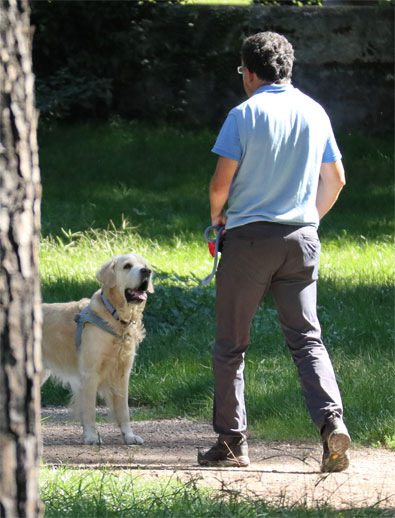By Dr. Alex Boo and Dr. Claire Ashburner of West King Edward Animal Clinic
1. Oral Health – Brush Your Dog’s Teeth

Brush your dog’s teeth once daily. Dental disease is one of the common reasons why dogs and cats come to the veterinarian. Complications include abscesses, bacteremia (bacteria in the bloodstream), bad breath, and gingivitis. Start early when your dog is young, so he or she can get used to having your fingers in the area. You can use dental diets and treats to give you a hand, but the mainstay of treatment is the mechanical brushing of the teeth, which has the most evidence of being beneficial in the most recent scientific research.
2. Nutrition – Find the Right Diet for Your Dog’s Specific Needs

Feed a well balanced and nutritional diet. Today there are many different diets out on the market to choose from including kibble, freeze dried, raw, and canned! Nutrition is the building block of growth and prevention of disease, so it is important to start early on in your pet’s life. Nutritional needs change depending on a pet’s life stage, concurrent diseases, and body condition. Have a discussion with your veterinarian on what is the most appropriate diet for your pet.
3. Vaccinations – Vaccinate to Prevent Disease
Vaccinate your dog. There are many preventable diseases that can spread from animal-animal, as well as animal-human. Some are core vaccines, while others are lifestyle dependent. Speak to your veterinarian about which ones are the most appropriate for your pet. Vaccinating your dog as a puppy and following up with the appropriate boosters will ensure that his or her immune system is well-primed to fight off many diseases. Your veterinarian also has the most up to date information on which diseases are the most prevalent in your area.
4. Exercise – Keep your Dog Active

Living an active lifestyle benefits both you and your pet! A dog needs a minimum of 30-60 minutes of exercise daily. This can include a walk through the neighbourhood, hiking or running on the local trails or a visit to their favourite dog park! Depending on your dog’s life stage, concurrent disease and fitness levels, different activities will be indicated or recommended, tailor-made to your pet. It is best to speak with your veterinarian in more detail for exercise recommendations. Keeping your dog in good physical shape is of utmost importance to help them lead a long and healthy life. Exercise is key for weight management, disease prevention and maintaining a high quality of life. Recent studies suggest that obesity and the disease states associated with it can reduce a dog’s lifespan by at least two years!
5. Preventative Health – Know What’s Normal for your Dog and Be Proactive about Checkups
When interacting with your dog at home, get used to handling his/her paws, skin, ears, mouth, and fur. Get used to your dog’s habits: bathroom, activity level, and behaviour. That way you can get used to what is normal for your pet, and will be able to detect problems earlier if they do arise and discuss it with your veterinarian during an annual exam.
As our dogs age, it is important to be proactive in detecting diseases and aliments early. For this reason, we recommend check ups every 6 months (biannually) in our senior dogs.
